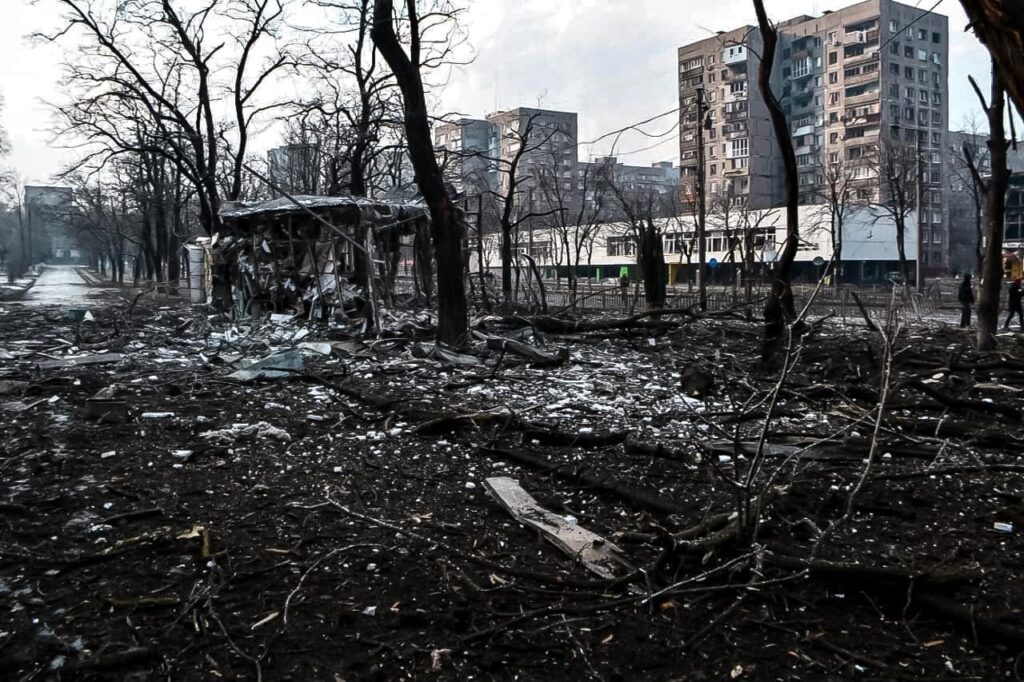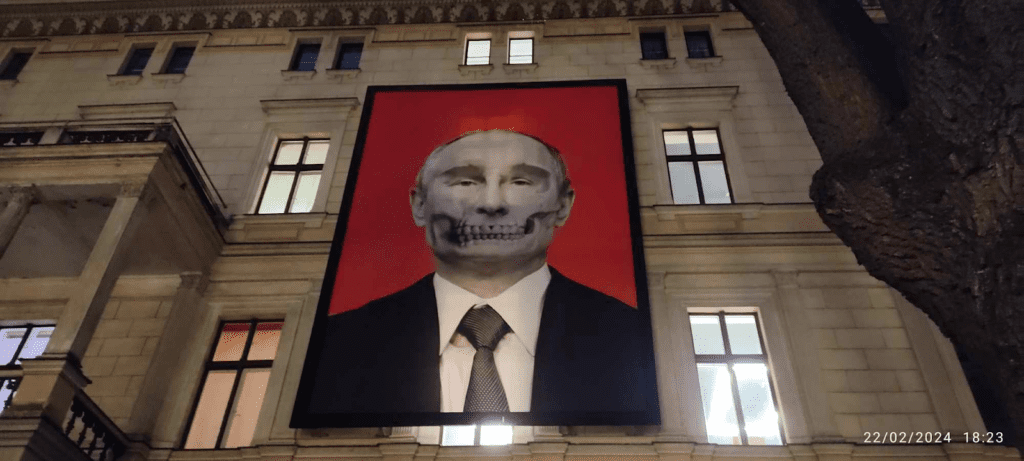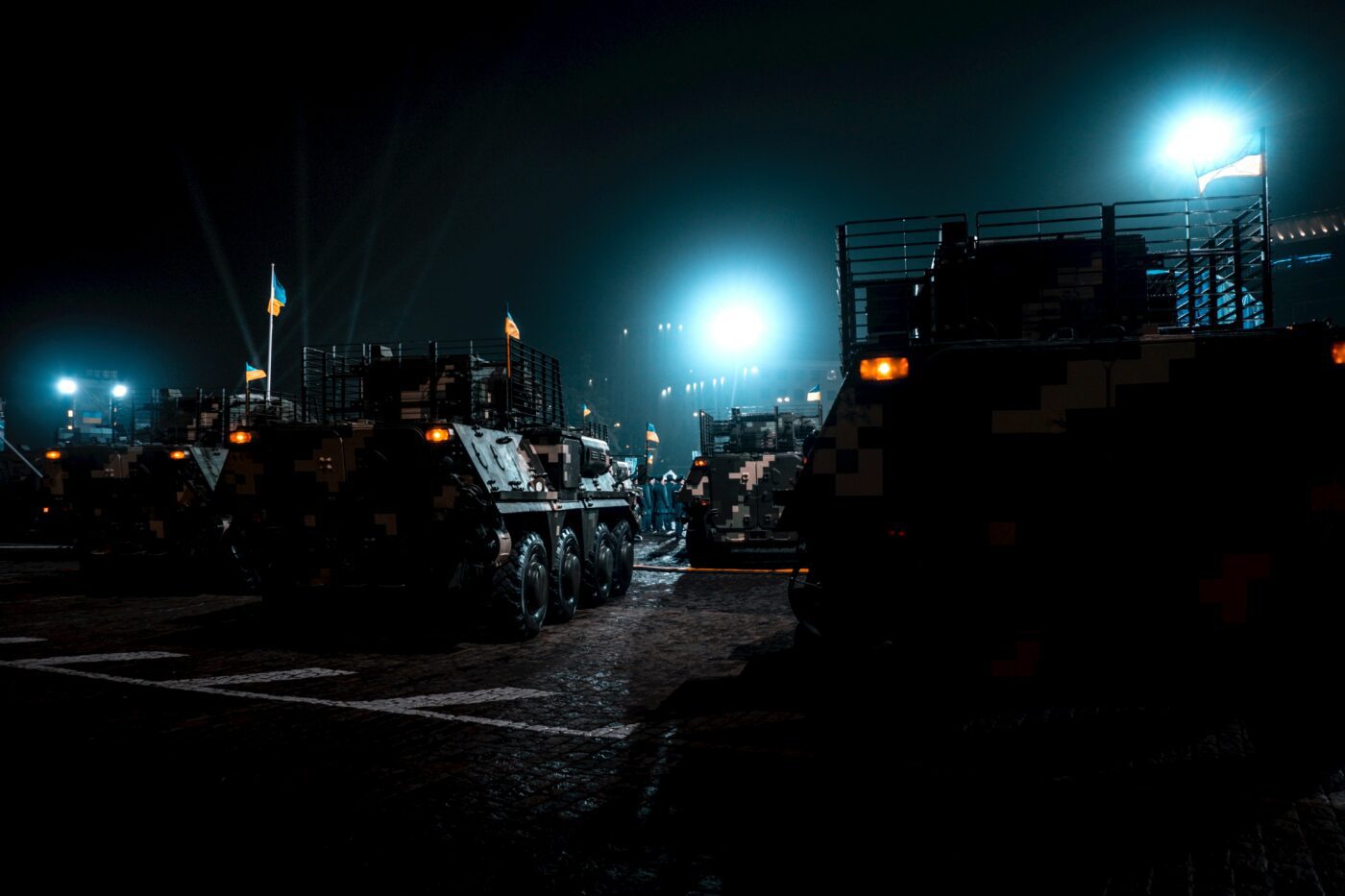February 24th marked a dark and devastating day in many peoples’ hearts, it was the date of the full-scale invasion of Ukraine by their big, bad wolf-of-a-brother Russia. After two full years of Russian assault—what are the crucial updates, and what factors keep the war going despite all the horror?
Despite the number of calamitous losses, the war goes on. At least 20 000 children have been forcefully removed from their homes and families in Ukraine and brought to Russia. At least 70 000 Ukrainian soldiers, and more than 10 000 Ukrainian civilians, have died in the war. Maliciously targeted bombings of infrastructure, hospitals, and apartment buildings have rendered entire cities dark, cold, and nonfunctional. Mariupol— a city where more than half of the buildings have been destroyed— no longer has any operative hospitals and almost no remaining educational facilities. Unsurprisingly, Mariupol also faces a devastating loss of identity. The occupying forces have already greedily begun rebuilding much of the city’s infrastructure. Culturally important war-ravaged buildings have been demolished as the occupiers arrogantly plan to rebuild the city for Russian inhabitants— displacing many of the locals and forcing them to emigrate. Stefaniia, who has lost her entire family including her child during a merciless Russian attack, says “The city was beautiful. Now, it’s darkness.”


Losses have not been limited to the Ukrainian side. An estimated minimum of 42 000 Russian soldiers have died at the hands of their own leader. These deaths are not going unnoticed, as even pro-war Russians have been questioning Putin’s methods. The mothers and wives of Russian soldiers are protesting for the demobilization of civilians. Their peaceful husbands, brothers and sons have been sent to Ukraine to fight and have not been home for what seems like forever to them. A soldier’s wife commented that “Putin first lied to us that civilians would never have to fight. You start thinking: is he also lying about why we are in Ukraine?” Despite these protests, doubts and losses, the war goes on.


This war is a new type of war, with innovation sustaining Ukrainian resilience alongside brute 20th century techniques – it is “a high-tech war as well as a trench war”. While dugout soldiers endure rat infestations and macabre diseases in the trenches, tech companies are testing the frontiers of modern warfare. Palantir Technologies, a data-analytics company, has become entrenched into Ukrainian defense tactics. The products offered by the company allow military agencies to “analyze satellite imagery, open-source data, drone footage, and reports from the ground to present commanders with military options”. Beyond that, the technology also helps with “collecting evidence of war crimes, clearing land mines, resettling displaced refugees, and rooting out corruption.” Companies specializing in drones have also set up in Ukraine. Although the full impact of modern warfare is yet to be seen, just this Valentine’s day Ukrainian naval drones managed to sink a Russian warship. A fantastic feat. Deborah Fairlamb, a startup fund co-founder at a defense conference, joked that “no one would even look at a product unless it had “Tested in Ukraine stamped on it”. Despite all of these technological advancements, the war goes on just as cruelly as two years ago.
The reason Ukraine is heroically able to resist becoming Russia’s newest conquest, and the war is able to go on, is partly due to foreign aid. Aid that will surely keep being given, right? There is a very real possibility that a Russian victory would threaten and undermine more than just Ukraine’s safety – it could menace all of Europe and NATO. The Estonian prime minister has remarked that “Everything is at stake in this war: each and every one of the core principles of European security have come under attack.” Surely, this threat should necessitate aid. Sadly, however, aid is slowing as the U.S. lazily struggles to vote through a new $60bn package because they chose to take a two-week recess instead. The impact of this stall can already be felt in Ukraine as the invaders are making real progress and inching closer to occupying yet another city: Avdiivka. Regular Ukrainian troops are being withdrawn and replaced by special units. This specific battle is being described as hell. Despite the hell being endured, the war goes on.
Two years of ruthless invasion, occupation and hellish battles. Two years of losing loved ones and cherished cities. Two years of policy making, summits, and votes. Despite all this, the war still goes on right at Europe’s doorstep. With no clear winners and so much destruction, the future is very unclear. New developments are unfolding rapidly, heightening the sense of concern among observers. Putin’s loudest critic—Alexei Navalny—has conveniently died, adding to the sense of uncertainty. Despite this, a quote of his—emphasizing the strength in resistance—is resurfacing: “If they decide to kill me it means that we are incredibly strong. We need to utilize this power to not give up, to remember we are a huge power that is being oppressed by these bad dudes”.
Meanwhile, the decision by Ukrainian President Volodymyr Zelenskyy to replace a popular army chief with one that has a reputation of being scarily apathetic towards the loss of soldier lives has sparked both hope and despair. Despite the challenges, the war still goes on and Ukrainians continue to persevere. In the words of Ukrainian journalist and soldier Oleksii Borys, “Many people claim that on the first day [of invasion], there was uncertainty about whether we would prevail, as fear emerged due to the vast armada of Russian aircraft, tanks, and infantry advancing towards Ukraine. I state without hesitation, and these words hold true, that I knew Ukraine would undoubtedly withstand. We may face challenging times ahead, but we will surely reclaim our country.”
By Annele Baltmane
February 27, 2024
This article is an opinion piece whose contents represent the standpoint of its author and not UPF Lund or The Perspective’s editorial board.








